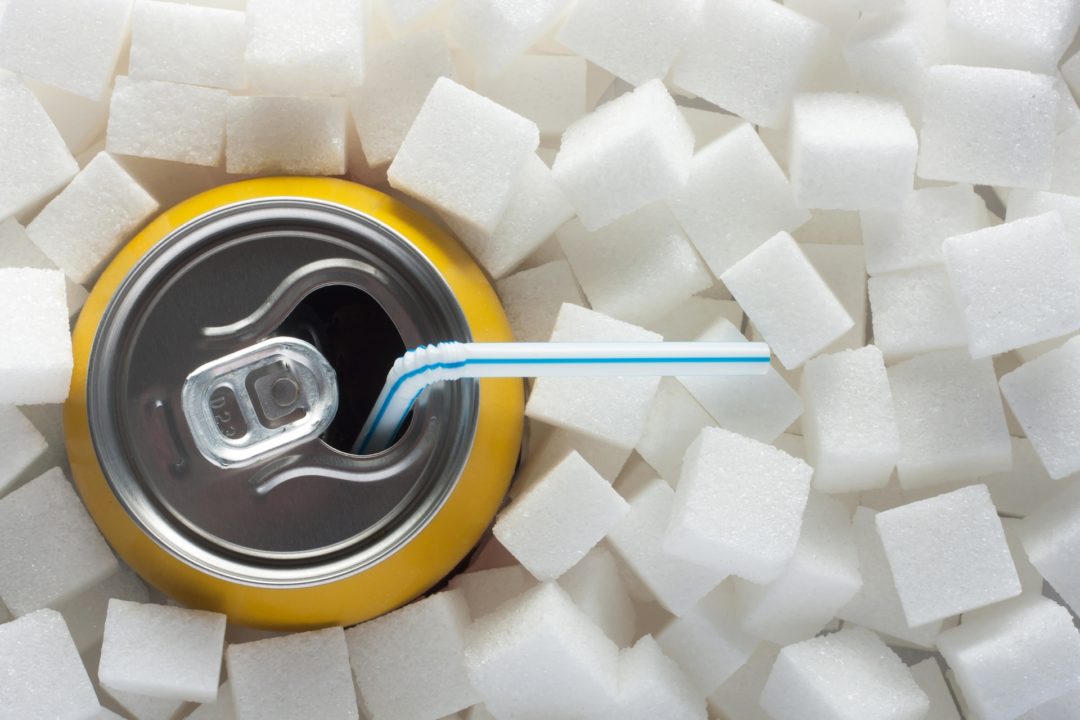
Study: High-Fructose Corn Syrup May Fuel Colorectal Tumors

A press releasefrom Weill says the findings might have implications for cancer treatment or prevention, although it requires human studies. Co-senior author Dr. Lewis Cantley said, “The study shows that colorectal polyps feed on high-fructose corn syrup and explains the molecular mechanism by which this drives the growth of the tumor. While our work was conducted in mice, our findings build on mounting evidence that sugar fuels cancer growth.”
The release notes that consumption of soda and other beverages sweetened with HFCS has increased dramatically since the 1980s. Observational studies suggest that people who eat more sugar-sweetened foods have a higher risk of colon cancer, and other observational studies have linked diets high in processed meats and low in fiber to increased colon cancer risk, and high-fiber diets low in red meat have been associated with reduced risk. While cancer is too complex to be definitively linked to any one thing, the release says, there are good reasons to suspect that diet is a contributor.
The study was performed on mice genetically engineered to develop colon tumors. The researchers squirted a small dose of HFCS into the mouths of the mice every day for eight to nine weeks, then compared the tumors that developed in the sugar-fed mice with tumors in mice with the same predisposition to colon tumors but with no added sugar in their diet. The sugar-fed mice developed more large tumors than the control mice.
Dr. Marcus D. Goncalves, lead author of the study, said, “We were not able to show that giving HFCS causes new tumors because these mice develop tumors even on normal diets free of added sugar, but when you give them this additional sugar, the tumors grow much bigger.”
The researchers were able to show that colon tumors readily take in glucose and fructose: an enzyme converts the fructose into fructose-1-phosphate, which the tumor can use for energy. They added that sucrose is likely to have the same affect.
Deleting the gene responsible for the enzyme in question prevents the tumors from growing bigger. Dr. Goncalves, however, suggested a low-sugar diet like theketogenic diet, saying that the dietary approach would work best with treatments such as chemotherapy or radiation. “It’s the ability of diet to enhance traditional therapy that I believe holds the most promise,” he said.

The editorial team at WholeFoods Magazine has decades of experiences reporting on natural products industry news, trends, and more. This national, monthly business-to-business magazine has been published continuously for nearly 40 years (the magazine was founded in 1977, and has been owned by Wainer Finest Communications since 1984). It is the longest-tenured media outlet of its kind in the natural products industry. The editorial focus at WholeFoods Magazine is, and always has been, on informing and educating members of the natural products industry.
The Magazine
Information
About Us
NOTE: WholeFoods Magazine is a business-to-business publication. Information on this site should not be considered medical advice or a way to diagnose or treat any disease or illness. Always seek the advice of a medical professional before making lifestyle changes, including taking a dietary supplement. The opinions expressed by contributors and experts quoted in articles are not necessarily those of the publisher or editors of WholeFoods.







